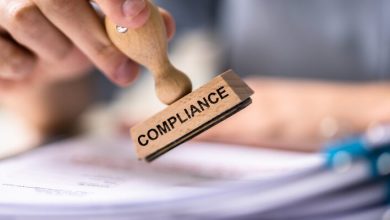From Reactive to Predictive: The Role of AI in Revolutionizing Fintech Compliance

In the high-stakes, fast-evolving world of financial technology, compliance has traditionally been a defensive game. Fintech companies would build controls, monitor for violations, and respond when something inevitably slipped through. But that playbook is no longer sufficient in a global market where regulatory complexity, client expectations, and competition are all intensifying. Thanks to artificial intelligence (AI), the compliance function is undergoing a fundamental shift—from reactive damage control to predictive intelligence and prevention.
Nowhere is this transformation more apparent than in the realm of payroll compliance. For fintech companies offering payroll services or building global platforms for human capital management, AI is no longer a nice-to-have—it’s a necessity.
Real-Time Compliance, Not Real-Time Remediation
“AI is shifting fintech payroll compliance from reactive to proactive,” says Elizabeth Oviedo, CEO of Symmetry, a leading payroll tax compliance technology company. “It enables real-time error detection by flagging anomalies in thousands of paychecks instantly, preventing mistakes before they lead to employee questions or regulatory penalties.”
This kind of real-time intelligence is a major step forward for payroll teams that have historically relied on human audits and after-the-fact adjustments. AI algorithms can parse massive volumes of payroll data and instantly detect discrepancies that would be almost impossible to catch manually—such as misapplied tax rates, jurisdictional misclassifications, or outlier payment amounts.
But Oviedo emphasizes that AI’s effectiveness hinges entirely on the quality of its foundational data. “Establishing a robust compliance infrastructure—such as a payroll tax engine or a comprehensive database of jurisdiction-specific HR regulations—is now more crucial than ever.”
Predictive Risk Assessment and Regulation Monitoring
One of AI’s most promising contributions is its ability to anticipate risk—not just identify it. Predictive compliance uses machine learning models trained on workforce trends, historical issues, and evolving legal frameworks to identify potential vulnerabilities before they become liabilities.
Oviedo points to Automated Regulatory Monitoring as a key use case. “AI that can constantly track federal and state-level regulations, enabling rapid adaptation to new laws, is a game-changer,” she says. “It’s critical to build the underlying systems that deliver real-time updates to your payroll tax engine that powers this level of automation.”
With regulators updating policies frequently—particularly in areas like employee classification, cross-border payments, and benefits administration—automated monitoring saves fintechs from playing perpetual catch-up. Instead, compliance teams can act on alerts as laws change, staying ahead of enforcement actions or reputational damage.
Smarter Onboarding and Greater Transparency
Beyond payroll, AI is helping fintechs tackle broader areas of compliance. Enhanced identity verification powered by AI tools can now review Form I-9 documents during onboarding and determine the likelihood of authenticity, helping reduce fraud and speed up hiring.
Another overlooked but crucial area is compliance explainability. Regulatory frameworks are notoriously complex and often difficult for non-experts to understand. AI tools that can translate legal jargon into clear, accessible guidance for HR managers, payroll administrators, and employees are helping to elevate compliance literacy across entire organizations.
“AI excels at analyzing extensive, complex compliance regulations and translating them into clear, understandable language,” Oviedo says. “This fosters improved compliance literacy throughout the workforce.”
Competitive Advantages: Scale, Speed, and Investor Confidence
Predictive compliance doesn’t just make fintechs safer—it makes them stronger. As Oviedo explains, the automation and insight provided by AI open new doors for growth and market leadership.
First, AI enables scalability. Automating compliance processes allows fintechs to expand their client base without needing to grow their operations team at the same rate. For startups and high-growth firms, that’s a powerful way to balance ambition with control.
Second, AI accelerates market entry. Companies expanding into new states or countries can use AI to instantly assess and map the regulatory requirements, compressing the typical research and integration time. What once took months of legal consultation and manual configuration can now be achieved in weeks—or even days—with the right tools.
Third, and perhaps most importantly, AI-powered compliance boosts investor trust. Regulatory missteps can be devastating in terms of fines, reputational damage, or product delays. Demonstrating that your compliance infrastructure is proactive, predictive, and data-driven signals maturity and reduces perceived risk—critical factors in winning investor confidence.
The Future of Compliance Is Intelligent
As fintech companies continue to scale globally and offer increasingly sophisticated services, the demands on their compliance systems will only grow. In this environment, AI is more than a technological enhancement—it’s a strategic imperative.
Moving from reactive compliance to predictive compliance is not just about avoiding penalties. It’s about empowering fintech companies to operate with speed, confidence, and clarity in a constantly shifting regulatory landscape.
“Ultimately,” Oviedo concludes, “AI is turning compliance into a competitive advantage.”

Source: From Reactive to Predictive: The Role of AI in Revolutionizing Fintech Compliance



